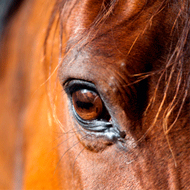
Retailers need to use smaller supply chains says committee chairman
A year on and without a single prosecution over the horsemeat scandal, a Government committee says there is still much work to be done to prevent future contamination of our food.
This week sees the first anniversary of the food scandal. An investigation panning across Europe is still continuing.
Anne McIntosh, chairman of the Environment, Food and Rural Affairs Select Committee, said: "Retailers still need to work on smaller supply chains.
“By buying local we can more likely trace all sources of our food."
Professor Chris Elliott, author of the latest review into the integrity of food supply, presented his findings to the committee last week.
"Professor Elliott highlighted in particular the transportation of meat as being of highest risk and the storage of meat slabs. There is also a need for more food analysts to reduce the risk," said Miss McIntosh.
The committee has called for the Food Standards Agency (FSA) to become "A more efficient and effective regulator."
"The FSA must have the power to be able to compel industry to carry out tests when needed. It must also be more innovative in its testing regime and vigilant in ensuring every local authority carries out regular food sampling,” Miss McIntosh said.
A report by the committee in July, called for those responsible to be identified and prosecuted "To restore consumer confidence in the UK's frozen meat sector."



 The RCVS has announced a new version of its 1CPD mobile app, with enhanced features for veterinary surgeons and veterinary nurses to record their continuing professional development.
The RCVS has announced a new version of its 1CPD mobile app, with enhanced features for veterinary surgeons and veterinary nurses to record their continuing professional development.